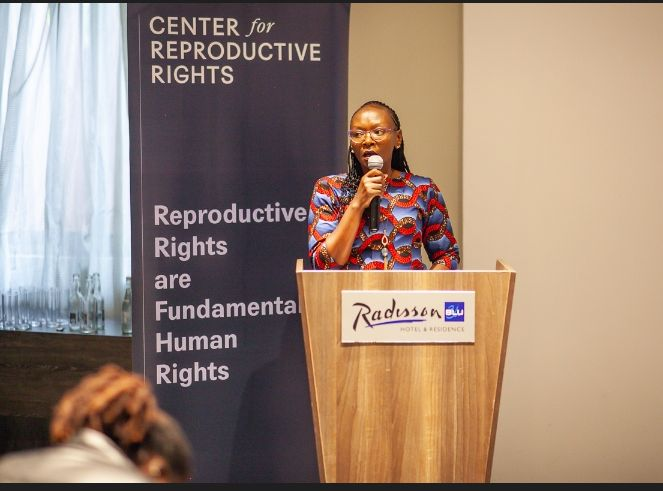Reproductive health stakeholders gathered in Nairobi on Friday May 26, 2024 addressing the pressing issues of new HIV infections, teenage pregnancies, and gender-based violence (GBV) among young people. The critical meeting, organized by the Center for Reproductive Rights (CRR) and the Reproductive Health Network Kenya (RHNK), included government officials, healthcare providers, NGOs, and civil society organizations.
“The overlapping challenges of HIV, adolescent pregnancies, and GBV are significantly hindering Kenya’s progress toward achieving the United Nations Sustainable Development Goals,” said Mary Akubo from the Ministry of Health’s reproductive and maternal health division. She emphasized the need for a robust approach to sexual and reproductive health and rights (SRHR).
Akubo highlighted the urgency of the situation, stating, “We are at a critical juncture where coordinated action can significantly reduce the burden of these interlinked issues. The ministry is working together with all stakeholders to create a safer, healthier future for the youth.” She pointed to the Kenya Reproductive, Maternal, Newborn, Child, and Adolescent Health (RMNCAH) Investment Framework, which aims to improve reproductive health services, especially in slum areas.
Nairobi County has seen a troubling rise in HIV infections among adolescents and young adults, alongside high rates of teenage pregnancies. These pregnancies jeopardize young women’s health and future prospects and perpetuate cycles of poverty and limited opportunities. “GBV remains a pervasive issue, further undermining the health and well-being of individuals and communities,” noted Akubo.
The Kenya Demographic and Health Survey (KDHS) 2022 revealed that key drivers of teenage pregnancies include lack of education, poverty, harmful cultural practices, and barriers to accessing sexual and reproductive health services. These findings underscore the need for integrated healthcare services and targeted interventions to address these challenges.
Participants at the meeting stressed the importance of providing integrated healthcare services to tackle HIV, teenage pregnancies, and GBV collectively. “Expanding access to sexual and reproductive health services, enhancing HIV prevention and treatment programs, and offering comprehensive support for GBV survivors are essential steps,” said a representative from the CRR.
Education and awareness campaigns were also highlighted as crucial. “Improving knowledge about safe sexual practices, consent, and available health services empowers individuals, especially the youth, to make informed reproductive health decisions,” added a participant from RHNK.
Policy and advocacy efforts are essential components of the strategy. Stakeholders emphasized the need for strengthened policy frameworks and sustained advocacy to enforce existing laws and develop new policies that protect and promote reproductive health rights. “Sustained advocacy is crucial to ensure these issues remain a priority at all levels of government,” said a representative from a participating NGO.
Community engagement was identified as a critical factor in the discussions. “Involving community leaders and organizations is key to reaching vulnerable populations and fostering an environment of support and accountability,” stated a local community leader. By working closely with communities, stakeholders aim to create a more supportive and informed network to combat the triple threat effectively.
As the meeting concluded, there was a palpable sense of commitment and collaboration among the participants. The strategies and insights shared during the event marked a significant step forward in addressing the reproductive health challenges facing Kenya’s youth. With a unified approach and continued effort, stakeholders are hopeful for a future where the triple threat is significantly reduced, and young people can thrive in a healthier, safer environment.
Reproductive Health Stakeholders Unites to Tackle Youth Reproductive Health Crisis.






